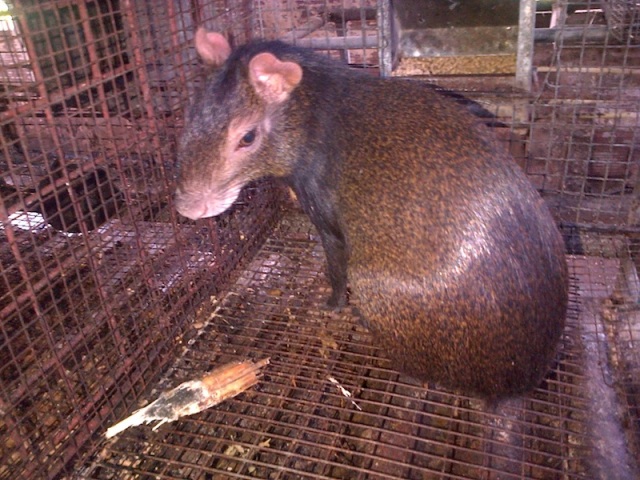Reblogged from the Global Landscapes Forum Blog

Joseph Macharia speaks at the session “Youth: The Future of Sustainable Landscapes” during the 2013 Global Landscapes Forum
Joseph is a Kenyan farmer, and he is harvesting his crop in cyberspace.
Joseph is taking the lead in growing a fraternity of people interested in agriculture through Facebook. Mkulima Young – “Young Farmer” in Swahili- the page he set up in January this year, has now gained 23,789 likes and continues to grow.
Almost 75 percent of working Kenyans make their living by farming. Agriculture continues to be the country’s most dominant economic driver in terms of Gross Domestic Product and employment rate.
Hailing from a peasant family, Joseph Macharia never really liked tilling the field like his father. He went to high school, achieved good grades in Biology and Agriculture and became a high school teacher.
Seven years later, Joseph walks confidently to the podium and faces a full house at the Global Landscapes Forum (GLF) in Warsaw, Poland. No one from the audience would guess the magnitude of the impact his singlehanded efforts make in engaging African youth with a career that many of them used to consider totally un-“like”-able: farming.
“My mother cannot read or write,” Joseph says. “But she has a mobile phone and she knows how to use it. This is the age of technology. We should evolve with the times,” he continues, confidently addressing the house.
He goes on to speak about his experience in using social media to engage youth for agricultural productivity. “I did not want to wake up early morning to go to the field, so I opened a Facebook page aimed at agriculture instead. I posted famous quotes, put up attractive images of funny watermelon carvings and inboxed my friends telling them to like the page,” says Joseph.
Today, Joseph’s Facebook page is on the verge of hitting the 24,000 “likes” mark. The page engages young and not-so-young farmers who discuss farming techniques, crop varieties, soil productivity and seasonal yields. What’s more, Joseph’s Twitter account attracts followers as diverse as scientists, policy makers, members of Parliament and the international Research for Development fraternity.
Continue reading →




